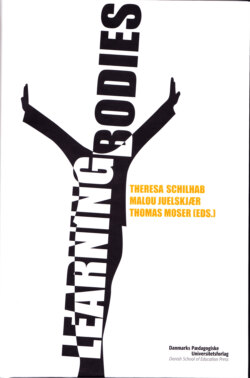Читать книгу Learning Bodies - Группа авторов - Страница 20
На сайте Литреса книга снята с продажи.
Interactional and contributory experts
ОглавлениеTo this point, we have presented arguments for how the body from the biological point of view in the form of bodily construction, delegation of knowledge and evolution could be imperative to cognition. Though these arguments are persuasive, we still circle around any concrete demonstration of body knowledge in actual cognition. Even if the body is constitutive of perspective, decentralized learning, and species-specific learning mechanisms, a direct link between specific cognitive processes and the body is still needed. The link becomes even more urgent in light of theories of knowledge which assign the connection between cognition and the body more or less to metabolic processes in the sense of oxygen and carbohydrate supply. And it is a fact that we can use concepts properly – for instance unicorns – even if we never actually had any bodily experience of the phenomenon the concept refers to.
To understand how far bodily constraints of cognition take us, we have to analyse in what sense concept use is independent of bodily experiences. In Collins (2004), the distinction between interactional and contributory experts in, for instance, a scientific field is a distinction between experts without the concomitant bodily experience and experts with bodily experience (see also Collins et al., 2006; Collins & Evans 2007). While contributory experts are full-blown experts (they can publish papers in scientific journals, apply for jobs and work in laboratories), interactional experts are not. However, interactional experts, such as science writers and sociologists, have participated for many years in the scientific discourse. To ascribe symbol type knowledge (see Collins 2000) to interactional experts would be a mistake. Prolonged immersion in the language socializes interactional experts and distinguishes them from any expert system type person. Interactional experts may have informed talks with contributory experts with advanced knowledge that makes them able to “recognise jokes, irony, and leg pulls” (Collins 2004, p. 129). Though they cannot apply for a job in the subject, they are eloquent in conversation. According to Collins, if an interactional (I) and contributory expert (C) were to converse with a third party – another contributory expert, he would not be able to differentiate between the two by discourse alone. That is to say, I and C might share same linguistic insight into the topic. Put differently, I and C both know all there is to know explicitly about the topic, but I has no additional knowledge from hands-on experience in practice.
Differentiation of knowledge into contributory and interactional expertise touches upon the possibility that linguistic competence could be independent of body knowledge.
The idea of interactional expertise allows that the language of a community whose members are embodied in one way can be acquired by individuals with different shaped bodies and who cannot participate in the activities of that community (Collins 2004, p. 129).
Given the validity of this picture, bodily experiences are not causally connected to informed conversations. Thousand of hours of experience with laboratory equipment and bodily exposure to the situations researchers explicitly talk about should add nothing to their ability to address the scientific topic linguistically11.
